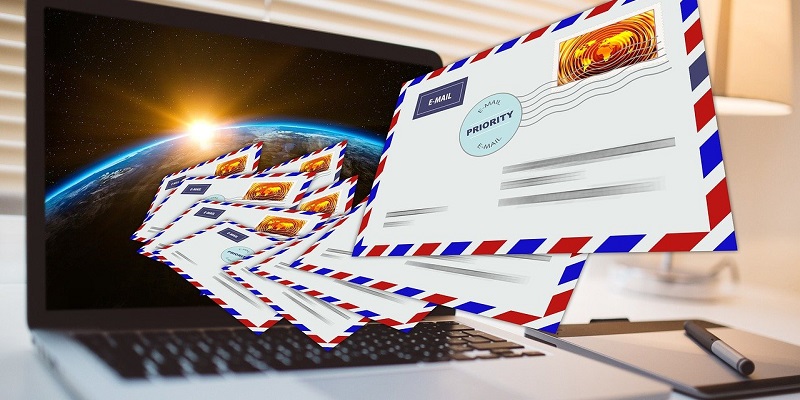In today’s fast-paced and ever-changing business landscape, B2B SaaS companies must continuously adapt their marketing strategies to stay ahead of the competition. While new digital channels and technologies emerge, one marketing tactic that has stood the test of time and continues to deliver exceptional results is email marketing. This article aims to highlight the evolving nature of email marketing and its significance in driving engagement, nurturing leads, and ultimately converting prospects into customers for B2B SaaS companies.
The Impact of Segmented Emails
Segmentation has proven to be a game-changer when it comes to improving open rates and engagement in email marketing campaigns. By tailoring content and messages to specific target segments, B2B SaaS companies can deliver personalized and relevant experiences to their recipients. Segmented emails enable companies to address the unique needs, pain points, and interests of different audience segments, thereby boosting open rates, click-through rates, and overall campaign effectiveness.
The Role of Automation
In the fast-paced world of B2B SaaS, time is of the essence. Automation takes the burden off marketers by ensuring timely and consistent communication with their audience without the need for manual effort. With email automation, companies can set up triggered campaigns based on user behavior, such as welcome emails, abandoned cart reminders, or re-engagement campaigns. This automated approach not only saves valuable time but also maintains a constant connection with prospects and customers, leading to increased engagement and customer loyalty.
The Power of A/B Testing
To maximize the impact of email marketing campaigns, B2B SaaS companies should continuously seek to optimize their messaging and design. A/B testing allows marketers to test different variations of their emails, such as subject lines, content layout, visuals, and calls-to-action. By analyzing the performance of each variant, companies can identify which elements resonate most effectively with their audience, leading to higher open and click-through rates.
Establishing Thought Leadership Through Content
In the crowded B2B SaaS space, it’s not enough to simply sell products or services through emails. To stand out, companies must demonstrate their expertise and position themselves as thought leaders. By providing insightful and educational content in their emails, B2B SaaS companies can build trust, credibility, and establish long-term relationships with their audience. Educational content could include industry trends, best practices, case studies, or tips on how to solve common challenges faced by their target customers.
Tracking KPIs for Campaign Success
To ensure that email marketing efforts are fruitful, B2B SaaS companies need real-time feedback on the effectiveness of their campaigns. By monitoring key performance indicators (KPIs) such as open rates, click-through rates, conversion rates, and unsubscribes, companies can gain valuable insights into their campaign performance. This data allows for quick adjustments and optimizations to improve overall campaign effectiveness and achieve desired marketing goals.
Mobile Optimization
With the increasing number of users accessing emails on mobile devices, it has become imperative for B2B SaaS companies to optimize their email campaigns for mobile. Mobile-friendly designs, responsive layouts, and concise yet compelling content are crucial to ensure a seamless user experience across different devices. Neglecting mobile optimization can result in diminished engagement, lost opportunities, and reduced conversions.
Nurturing Leads with Automated Drip Campaigns
Emails serve as a valuable tool for lead nurturing, especially in the B2B SaaS realm where the sales cycle can be lengthy. Automated drip campaigns allow companies to send a series of targeted and strategically timed emails to prospects, gradually guiding them through the buyer’s journey. By providing relevant information, addressing pain points, and offering solutions, B2B SaaS companies can nurture leads over time, build trust, and ultimately increase conversion rates.
Email’s Value in B2B SaaS
In the dynamic world of B2B SaaS marketing, email remains an indispensable channel for engaging the target audience, nurturing leads, and driving conversions. Its ability to deliver personalized content, automate communication, and measure campaign performance makes it a highly effective and cost-efficient marketing strategy for B2B SaaS companies.
As technology continues to evolve and customer preferences shift, B2B SaaS companies must adapt their marketing strategies to stay relevant in the market. Despite the emergence of various digital channels, email marketing remains a cornerstone for success. By leveraging the power of segmentation, automation, A/B testing, valuable content, tracking KPIs, mobile optimization, and drip campaigns, B2B SaaS companies can create a comprehensive email marketing strategy that engages their audience, nurtures leads, and drives conversions. The enduring importance of email marketing for B2B SaaS companies cannot be overstated, making it a fundamental pillar in their overall marketing efforts.

